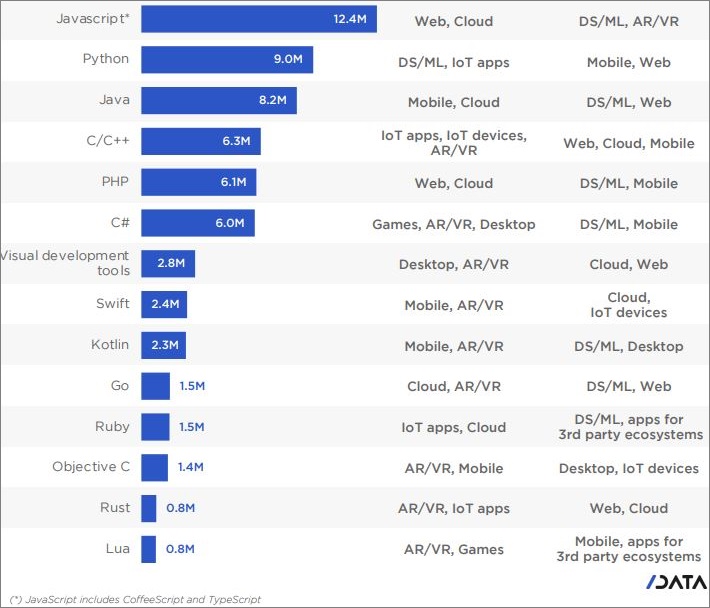Javascript is the world’s most used programming language with an estimated 12.4 million practitioners, according to a new survey.
The latest half-yearly Slash Data State of the Developer Nation report once again puts the web-developer tool at the top of the usability pile ahead of other major languages like Python, C++, and PHP.
Slash Data estimates that there are currently 21.3 million active software developers worldwide, more than half of whom use Javascript for projects.
The report furthermore suggests that around five million Javascript developers have joined the community since mid-2017.
“[That is] by far the highest growth in absolute terms across all languages,” the report said.
“Even in software sectors where JavaScript is least popular, like data science or [augmented/virtual reality], over a fifth of developers use it in their projects.”
The second-most used language is Python, a favourite of machine-learning and data science, which is used by roughly nine million active programmers.
Since 2017, Slash Data has tracked an uptick in the use of this 30-year-old language alongside the surge in artificial intelligence research and adoption.
“An impressive 77 per cent of [machine learning] developers and data scientists currently use Python,” the report found.
“For perspective, only 22 per cent use R, the other language often associated with data science.”
Before the pandemic, data analyst was picked as one of the most wanted jobs by companies in 2020, according to recruitment firm Robert Walters.
Javascript and Python are the most used languages by the world's programmers. Source: Slash Data
DevOps engineers was also mentioned as a key focus for business operations – and salaries were rising to boot.
Slash Data dedicated a section of its State of the Developer Nation report specifically to DevOps, finding a high rate of adoption among the broader community.
About 81 per cent of developers said they were involved in DevOps to some extent.
“The practices of the DevOps model are already widely adopted among professional developers across software sectors and organisational roles, although with some significant variations in the focus on specific activities,” the report said.
“These variations reveal, in some cases, that true commitment to the DevOps culture is not yet achieved; many developers are still focused on the core aspects of their role instead of assuming responsibility for additional phases of the product life cycle.”











